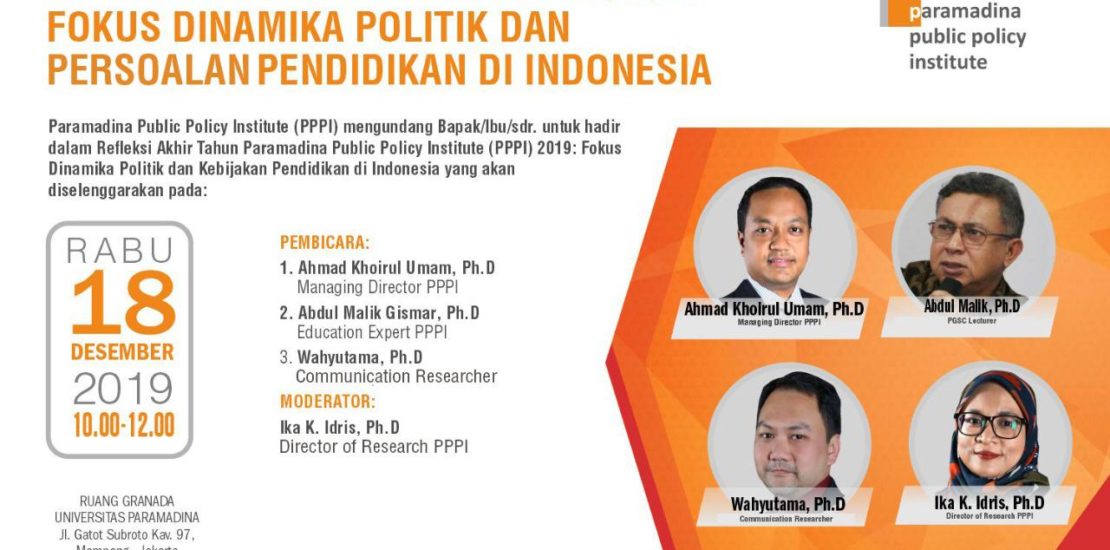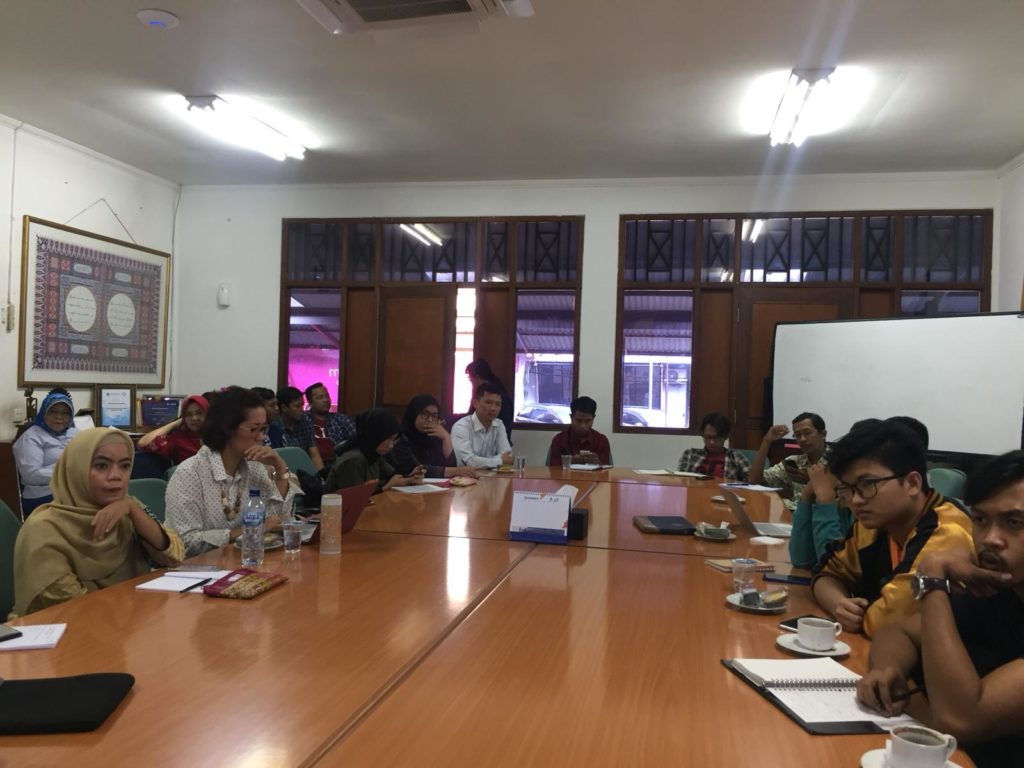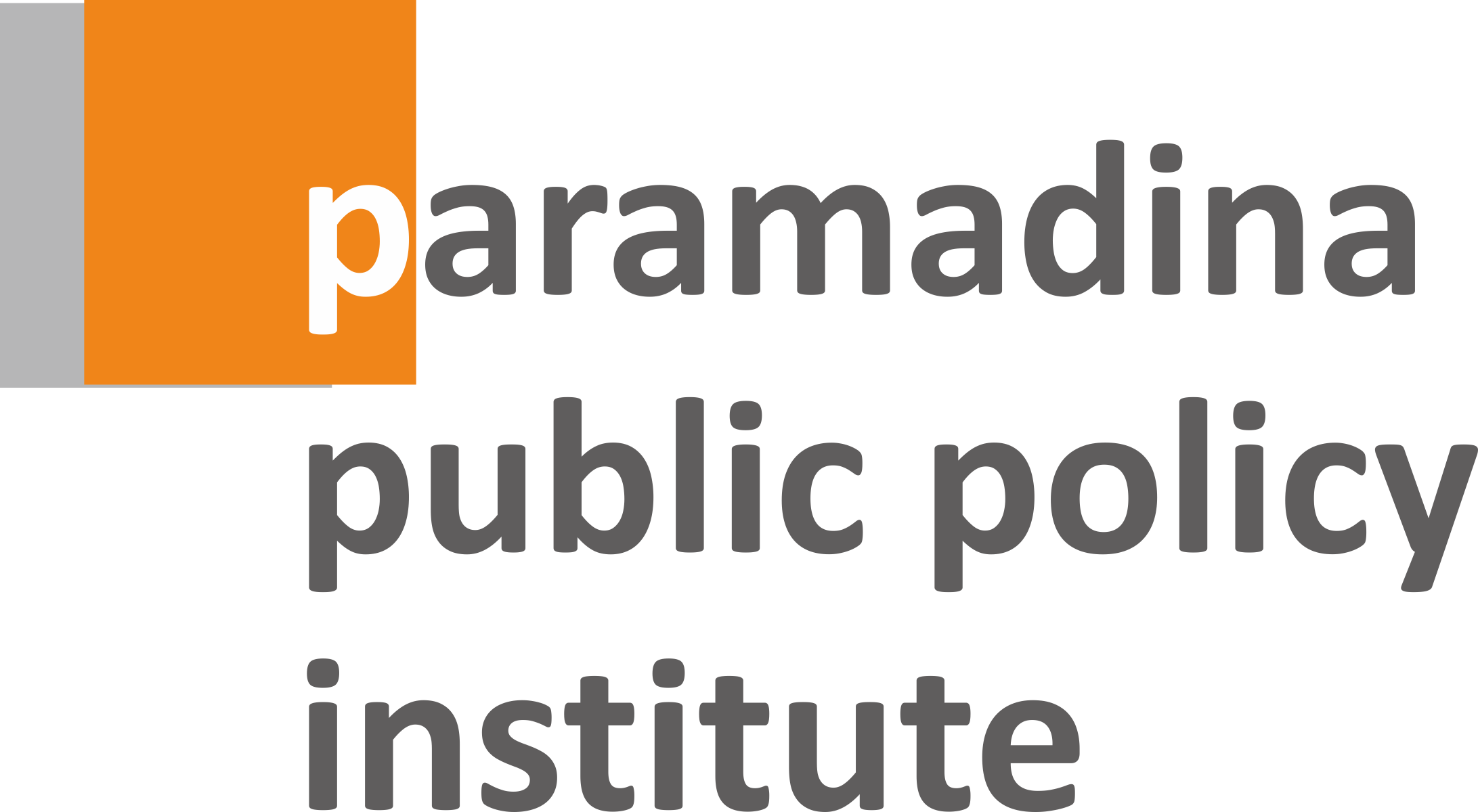- December 27, 2019
- Posted by: Admin PPPI
- Category: Anti Corruption, Education, News

As a developing country, Indonesia is endlessly challenged by issues and problems. Ranging from political issues, education, to digital literacy, these challenges keep romping around the development process in Indonesia. Understanding these problems certainly needs to be a common concern to later formulate solutions in the future.
In an effort to understand these challenges, Paramadina Public Policy Institute (PPPI) held a year-end discussion focusing on the dynamics of politics and education in Indonesia at Paramadina University, Wednesday, December 18, 2017.
In the field of education, almost all regional leaders like mayors and regents have not budgeted an education fund of 20 percent of their regional budget or APBD. This needs to be an important public concern because the 20 percent figure for education is a constitutional mandate.
This concern was stated by Abdul Malik Gismar, an education expert from the Paramadina Public Policy Institute who was present at the PPPI’s year-end discussion.

According to Malik Gismar, the main problem in budgeting is budget politics itself. This 20 percent figure is actually still problematic because the standards in each region are different. In the end, although it has been supported by regional transfers from the central government’s APBN (central govt’s budget), the regional governments budgetary regimes are still not optimally arranged. Failure to create budgeting priorities is an important issue in this regard.
Other speakers present at the event were PPPI’s Managing Director Ahmad Khoirul Umam, and two of the directors namely Ika Idris and Wahyutama. Also present were researchers and fellows of PPPI Muhammad Iksan, Septa Dinata, Muhamad Rosyid Jazuli and Sherly Annavita.
Umam discussed the issue of populism in the era of Jokowi’s presidential administration. He gave constructive criticism to the government to focus on navigating real-world problems in society, rather than creating some staged discourse. He suggested that instead of playing the issue of searching for the new capital city, the government should focus on the real problems of this country, namely unequal access to education and the fluctuation of corruption eradication endeavors.

Ika and Wahyutama gave presentations related to the political situation and participation and the level of digital literacy in Indonesia. The issue of disinformation became an important focus for Ika. Because, according to her, this disinformation is the main challenge of the young generation today in finding which information is useful for them and which is not.
Wahyutama discussed how the millennial generation’s engagement with political narratives emerges. For him, in the first place, the young generation is interested in politics because the ideas put forward by political figures seemed fresh. But because the ideas are increasingly clouded by political motives and interests, millennials unfortunately end up avoiding politics. (*)
